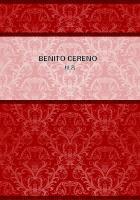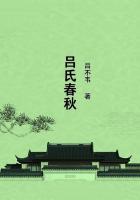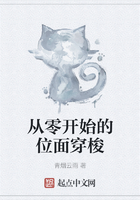"My Dear Sir: Your letter of the 5th inst., inclosing a slip from the Baltimore "American," has been received. The same statement has been published at the North for several years. The statement is not true; but I have not thought proper to publish a contradiction, being unwilling to be drawn into a newspaper discussion, believing that those who know me would not credit it and those who do not would care nothing about it. I cannot now depart from the rule I have followed.
It is so easy to make accusations against the people at the South upon similar testimony, that those so disposed, should one be refuted, will immediately create another; and thus you would be led into endless controversy. I think it better to leave their correction to the return of reason and good feeling.
"Thanking you for your interest in my behalf, and begging you to consider my letter as intended only for yourself, I am, "Most respectfully your obedient servant, "R. E. Lee."
In this connection I give the following letter thanking Mr. Burr for a copy of the "Old Guard" which he had sent him, and showing also what, in his opinion, the South had fought for, and of what true republicanism consists:
"Lexington, Virginia, January 5, 1866.
"Mr. C. Chauncey Burr.
"My Dear Sir: I am very much obliged to you for your letter of the 27th ult., and for the number of the 'Old Guard' which you kindly sent me. I am glad to know that the intelligent and respectable people at the North are true and conservative in their opinions, for I believe by no other course can the right interests of the country be maintained.
All that the South has ever desired was that the Union, as established by our forefathers, should be preserved, and that the government as originally organised should be administered in purity and truth. If such is the desire of the North, there can be no contention between the two sections, and all true patriots will unite in advocating that policy which will soonest restore the country to tranquility and order, and serve to perpetuate true republicanism. Please accept my thanks for your advocacy of right and liberty and the kind sentiments which you express toward myself, and believe me to be, with great respect, "Your obedient servant, "R. E. Lee."
An interesting view of my father's desire to keep himself from public attention is shown by his correspondence with an English gentleman, Mr. Herbert C. Saunders. The connected interview states his opinions on several points which are valuable. The copy of these papers was kindly furnished me by Mr. John Lyle Campbell, the Proctor of Washington and Lee University:
"Washington and Lee University, Lexington, Virginia, January 19, 1900.
"Capt. Robert E. Lee, West Point, Virginia.
Dear Capt. Lee: I inclose the copy promised you of the papers found in General Lee's desk. The paper seems to have had his careful revision, as there are a good many passages stricken out and a good many insertions in what seems to me undoubtedly to be his handwriting; and I was very much interested in the changes that he made, as they were most characteristic of him--toning everything down, striking out adjectives, turning phrases from a personal to a general character, and always adding simplicity and force to the original. It seems to me most likely that he was a first disposed to allow the publication, but declined at last, on August 22d, the full limit of time indicated in Mr. Saunders's letter. I am Yours truly, "(Dict.) Jno. L. Campbell."
The papers of which the following are copies were found in General Robert E. Lee's desk in the President's office at Washington and Lee University. On the envelope in which they were inclosed was the following indorsement in General Lee's handwriting:
"London, July 31, 1866.
"Herbert C. Sanders asks permission to publish his conversation with me. August 22d--Refused."
"3 Bolton Gardens, South Kensington, London, July 31, 1866.
"My Dear General Lee: Presuming on the acquaintance with you which I had the honour and pleasure of ****** last November at Lexington, while travelling in Virginia, I venture now to write to you under these circumstances. You may remember that, at the time I presented to you my letter of introduction, I told you that two other Englishmen, friends of mine, who had come with me to America, were then ****** a tour through Georgia, the Carolinas, and some other Southern States.
One of them, Mr. Kennaway, was so much interested with all he saw, and the people at home have appreciated his letters deive of it so well, that he is intending to publish a short account of his visit.















